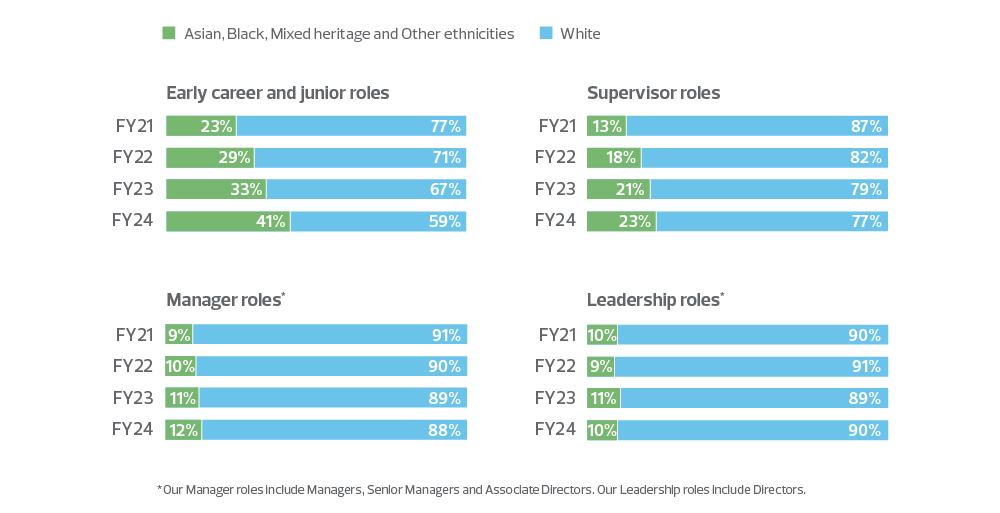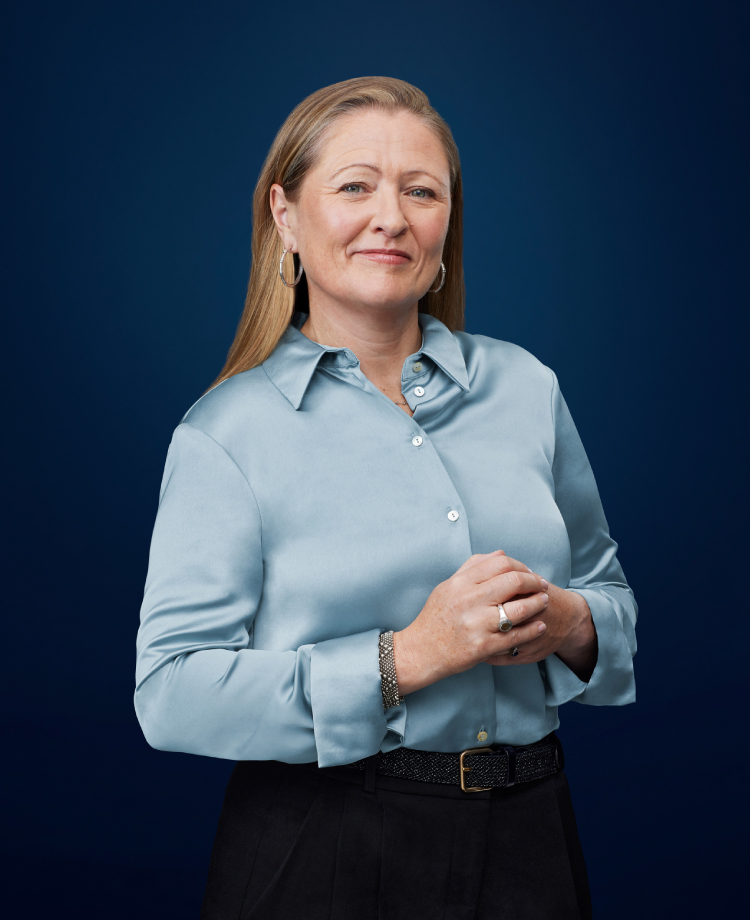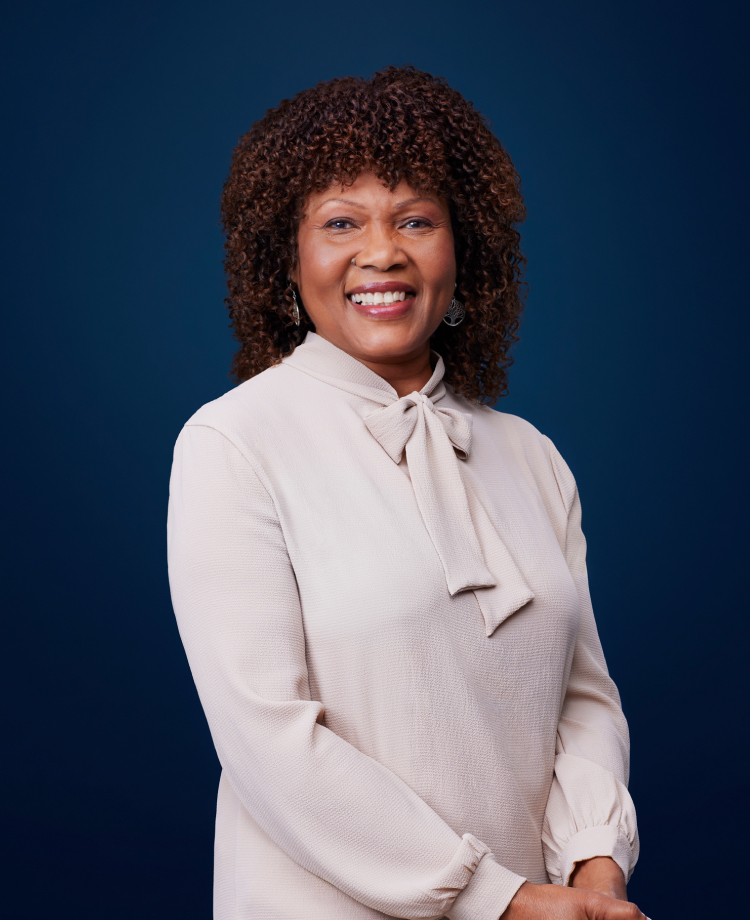Building a diverse workforce and fostering an inclusive, equitable culture is central to RSM UK’s long-term strategy. We know that by harnessing our differences, we’re able to attract the best talent, develop our people and deliver a premium service. In doing this we know that we can provide services that are reflective of, and responsive to, the needs of the clients and communities we serve.
Our firm is dedicated to creating an environment where everyone can bring their true selves to work. We recognise that transparency is key to this commitment. That is why we first reported on our gender pay gap data in 2018 and have voluntarily published our ethnicity pay gap data since 2020.
Future steps
Whilst transparency is essential for driving change, we recognise that pay gaps are only one piece of the puzzle. What truly matters is how we act in response to the data. That's why we consistently track our progress, assess what's working and challenge ourselves to do more—focusing our efforts on fostering intentional inclusivity across the firm.
We want to make meaningful, lasting change. This is why we have a long-term action plan in place to reduce our pay gaps.
- Gender pay gap
- Ethnicity pay gap
- Partner pay gap
- The pay gap explained
Gender pay gap
We are pleased to report that our gender pay gaps have continued to narrow for the fifth consecutive year. Our median bonus gap has also reduced this year but we have seen a small increase in our mean bonus gap.

Although we are proud of our progress, we know that our gender pay and bonus gaps still exist due to a higher proportion of men in our most senior roles. Increasing senior female representation remains central to our pay gap action plan.


Ethnicity pay gap
Our ethnicity pay and bonus gaps have widened this year.



We have worked hard to attract diverse talent to RSM. This has paid off as evidenced by our ethnically diverse representation increasing by 7.6% over the five years we have been reporting on this data. There has been an increase in ethnically diverse representation within all pay quartiles, particularly in respect of our early career and trainee intake. This impacts our salary and bonus data as salaries and bonuses are typically lower in these positions.


Partner pay gap
We are pleased to see that our mean pay gap has reduced. As have our bonus gaps, which continue to reflect a gap in favour of women. Our median pay gap has seen an increase this year.

The pay gap explained
The pay gap is different to equal pay.
A gender and ethnicity pay gap is a measure of the difference between the average pay rates for men and women, and for ethnically diverse and White employees.
Our methodology
We are required to report our gender pay gap data for each separate legal entity that has at least 250 employees. We have therefore reported data for RSM UK Tax and Accounting Ltd and RSM UK Management Ltd. It’s important that we consider all our people, so figures in this report combine the data of both entities.
In addition to our employee pay gaps, we voluntarily report our partner pay gaps.
Current statutory pay gap calculations require us to exclude undisclosed ethnicities and declarations of gender identity that are not binary, i.e. it includes only ‘men’ and ‘women’. Therefore, while we recognise and celebrate colleagues of all gender identities at RSM, we have had to exclude the following:
17% for non-disclosure of ethnicity.
0.1% of employees because of their non-binary or undisclosed gender identity.
Calculating the mean
We add up the rates of pay of all men and the rates of pay of all women, and then divide these figures by the total number in each group. We then report the percentage difference between these two figures as our mean gender pay gap.
We repeat this process for ethnically diverse employees, reporting the percentage difference as our mean ethnicity pay gap. The same methodology is applied in this report to show the difference between Black/Black British, Asian/Asian British, Mixed/Multiple heritage and Other ethnic groups and all White employees.
Calculating the median
We list rates of pay for every man and every woman and report the middle point of each list as the median. The percentage difference between these two figures is then reported as our median gender pay gap. This process is repeated for ethnically diverse employees, White employees and for each specific ethnic group. The percentage difference is reported as our median ethnicity pay gap. Our bonus mean and median pay gaps are calculated the same way.


Gender pay gap information


